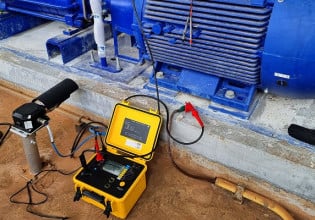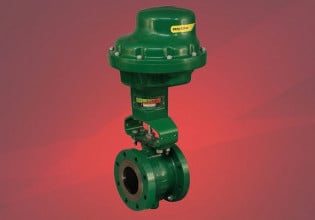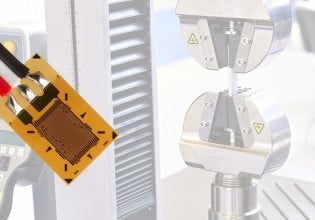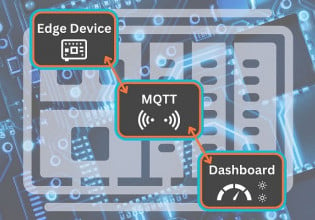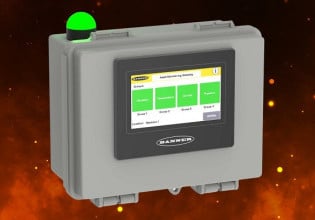The Importance of Multimeters
The voltmeter, or more often the multimeter, is an incredible tool, capable of troubleshooting nearly every electrical system and fault in existence.
No matter how often they are used, and what job they perform, there is always more you can accomplish with knowledge of how they work.
What is the Importance of a Multimeter?
Electrical technicians and engineers have a wide variety of tools available. Some of these are complex, often expensive tools for measuring one specific quantity, and if used properly, they can return many times their cost with just one or two uses.
But the multimeter, which has existed since the beginning of electronics, is still the most widely used instrument in the toolbox. But no matter what job they perform, there is always more you can accomplish with them.
The main perception of a multimeter is the often-used name of ‘voltmeter’ which is the most common quantity measured by the tool. This is usually because most meters are used to locate faults, and most faults exist in live circuits. Beyond the basic voltage, they are a variety of other functions, and even different modes within those functions, which can help any technician or engineer become more proficient at his or her job.
Owning a multimeter is a bit like having a particular tool for replacing a certain kind of brake, for example. You aren’t going to need it every day unless you work on brakes for a living. Same with a multimeter - don’t expect to use it every day unless your job involves troubleshooting control systems or electronics.
Since you wouldn’t expect to spend a lot of money on that one tool that you use occasionally, make the same decision with a multimeter.
Why Should You Have a Multimeter?
If you are an engineer or technician working on any kind of electrical system, you probably own a meter already. Most likely, this article is not written for you. However, knowing how to use the meter beyond just a few functions may prove extremely useful to you. Common industries that use meters would include any sort of manufacturing, distribution and processing center, lumber mills, industrial facilities, HVAC, residential and commercial electrical repair, and electronic installation, among many others.

Several different multimeters displayed.
Homeowners can easily use a meter to check wall outlets for voltage. If you turn off a breaker at the main panel and want to check which outlets belong to that circuit, the meter can be a quick option. If you have a light bulb in a drawer, you can easily use a resistance meter to see if it still works properly. If it does, you can save yourself from throwing it away and spending a few dollars on a new bulb.
In this industry, there are a few special meters that can measure auto mechanical systems a bit more easily. I would recommend finding a meter than can measure DC current using a small fork or clamp, since cars do not use AC voltages.
I am a firm believer that teachers should also understand how to address and fix problems, and should teach those skills to students. Perhaps most importantly in a CTE or shop setting, but these kinds of skills can save anyone hundreds or thousands of dollars over a lifetime just by having a bit of practical knowledge. I would recommend that if you teach and influence people, invest in tools that can teach them to work and solve problems independently - and a multimeter is only a small piece of that discussion.
Where Can I Get a Multimeter?
For most general use, you can find hand-held meters at the same place as everything else, online! Popular e-shops like Amazon and eBay have great deals and a wide selection, but best of all, they have reviews. I would trust 1000 user reviews over a sales brochure or online ad any day.
For slightly more reliable, and purpose-built meters, tool stored like Home Depot and Harbor Freight carry mid-range brands that can be trusted since the stores will only carry tools that have been tried and tested by many technicians.
But just like the tools they sell, if you really need the best, most reliable, and unfailing meter, there are a couple of specific options.
Fluke and Amprobe (both owned by Fluke) are generally the top of the line for electrical measurement tools. Keep in mind that reliability, calibration, and precision will cost you more. The cost can be worth it, if that’s going to keep you alive on the job, then you need a meter that will not likely fail.
Another category of meters is the bench-top, plug-in style meter. They can sometimes have more precision and better calibration ability than hand-held varieties. They are a few brands that offer a history of reliability - Meterman, B&K Precision, Keysight, and of course, Fluke. But these ones can also cost much more. They are great for test and verification engineers and technicians who need that precision.
You can expect to spend between twenty dollars and two hundred dollars on a good meter, depending on the brand and the source. As for what variety of meters that exist, those will be addressed in future parts of this series.

A multimeter being used by an engineer in a control cabinet.
You certainly want to purchase the correct tool for the job. If you use it very rarely, then make sure to purchase a reliable meter on the low end of the price range. A more expensive brand may be more durable and withstand higher voltages, but if you don’t need these benefits, don’t pay extra for them.
A good multimeter will save your money, or at the extreme, it could save your life. But having a meter is only the first step. Knowing how to fully use and understand its functions takes many chapters to explain.
Like using multimeters? We do too.
So much so that we published a downloadable eBook: The Guide to Digital Multimeters
Here are the other articles in this multimeter series:
- Understanding the Different Types of Multimeters
- How to Choose the Right Multimeter
- How To Measure DC Voltage With a Multimeter
- How to Measure AC Voltage With a Multimeter
- How to Use a Multimeter to Measure Current
- How to Measure AC Current Using a Clamp Meter
- How to Measure Resistance with a Multimeter


